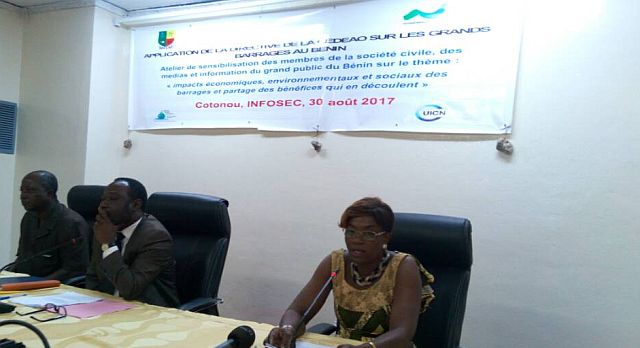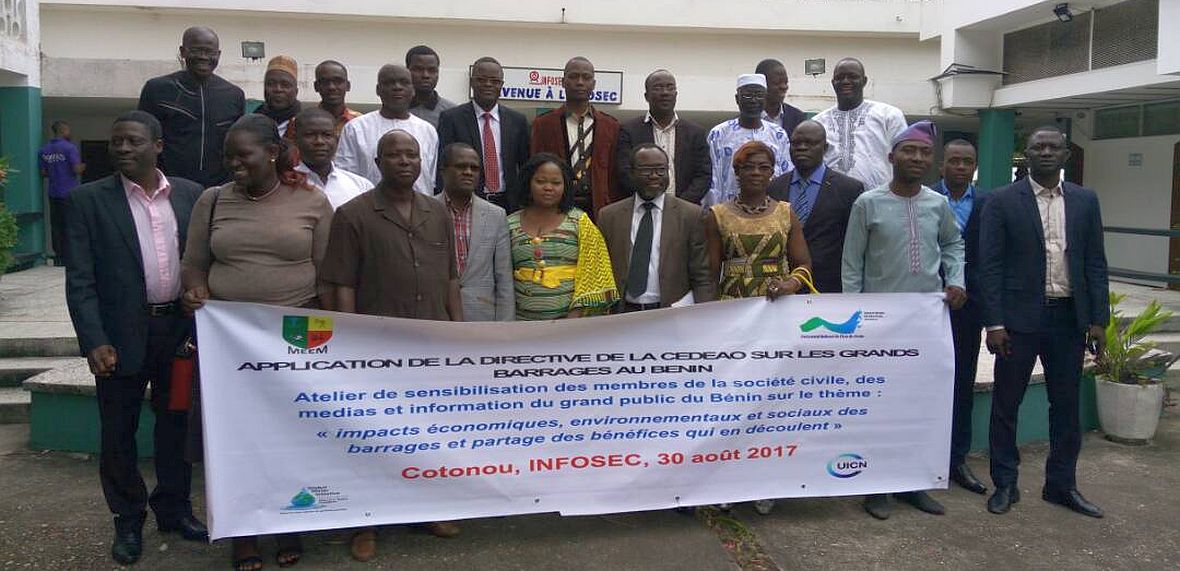The official ceremony of the workshop was chaired by the Deputy Secretary General of the Ministry in charge of Water. About forty participants from the Water, Energy, Civil Society and Media and attended the workshop.

High table at the official ceremony
ECOWAS adopted new guidelines on Large Dams Directive in June 2017 to have a better framework for the construction of large dams in West Africa and to avoid the damaging effects of dams. The ECOWAS Water Resources Coordination Center has tried to popularize these guidelines in the subregion from 2013 to 2015. Since last June, these guidelines have become an ECOWAS legal framework that is binding for all member states. Hence the need to make them known for ownership, in order to apply them. This is important for Benin that has planned the construction of several large dams including Adjaralla, Dogo Bis, Vossa, Beterou. The last three are designed in a multi-purpose approach: energy, irrigation, aquaculture, livestock, drinking water, regulation or flood control.
The workshop presented the Directive, made it known, discussed its application in Benin in general and to the Dogo Bis dam in particular. Participants were also able to identify the actions to be taken by civil society in terms of monitoring, advocacy, capacity building of CSOs, the media and technical decision-makers, in order not only to ensure that the Directive is considered in the legal corpus and regulatory framework of the sector but also for its application. It was recommended that the CWP Benin continue its efforts to strengthen the capacities of the actors involved in the construction of dams and that the Ministry in charge of water ensure the involvement of civil society, municipalities and users the development of the roadmap for the implementation of the Dogo-Bis project.
